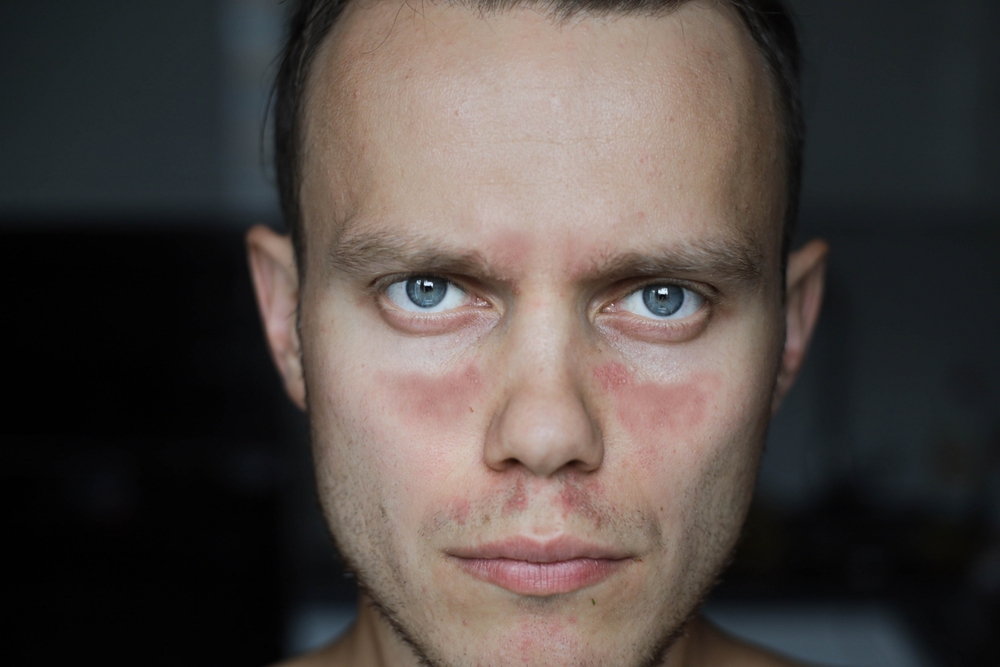In Malaysia, studies revealed that approximately 10,000 people have been diagnosed with lupus over the past 30 years. 90% of these cases occurred in women.
WORDS LIM TECK CHOON
 FEATURED EXPERT FEATURED EXPERTDR CHEAH CHEE KEN Consultant Rheumatologist Sunway Medical Centre |
Lupus is a complex autoimmune condition that sees the body’s own immune system attacking healthy tissues in the body, causing inflammation and organ damage.
It primarily affects the skin, joints, and internal organs.
LUPUS SYMPTOMS COME AND GO IN WAVES CALLED ‘FLARE-UPS’
Dr Cheah Chee Ken shares that the types of symptoms and severity of these symptoms tend to differ from person to person.
Symptoms of lupus can vary from mild to severe and often follow a pattern of flares and remissions. They may develop gradually or appear suddenly.
- Joint pain
- Skin rashes, especially on the face (‘butterfly rash’)
- Fever
- Fatigue
- Headaches
- Shortness of breath
- Swelling in arms, legs, and/or face
- Confusion
- Mouth sores
LUPUS CAN LEAD TO VARIOUS COMPLICATIONS
- Lupus nephritis, which sees the immune system attacking the kidneys, leading to inflammation and potential kidney failure.
- Neurological issues such as seizures, cognitive impairment, etc.
- Cardiovascular problems such as heart attack, stroke, etc.
- Respiratory issues such as pleuritis, pulmonary hypertension, etc.
- Vasculitis or inflammation of blood vessels.
- Blood disorders such as anaemia.
- Emotional issues such as anxiety and depression.
NO CURE BUT CAN BE MANAGED
4 Key Steps
- Seek early diagnosis and treatment.
- Follow prescribed medication regimens.
- Make necessary lifestyle modifications.
- Prioritize mental health and seek support when necessary.
Dr Cheah states that it is important for people with lupus to have their condition diagnosed and treated as early as possible.
“When treatment starts early, it becomes easier to manage the disease, significantly reducing the severity of complications and improving overall outcomes,” he elaborates.
Medications
Dr Cheah reveals that the doctor will aim to bring one’s lupus into a well-controlled state called remission.
Usually, someone with lupus will be prescribed with a combination of medications to prevent flare-ups as well as to reduce the severity of symptoms during a flare-up.
“Recent advances in medication have introduced more targeted therapies, potentially reducing unwanted side effects,” Dr Cheah adds.
Lifestyle Modifications
- Sun protection. Ultraviolet light can trigger flares, so it’s essential to use sunscreen and protective clothing.
- Balanced diet. A healthy, anti-inflammatory diet can help manage symptoms.
- Regular exercise. Low-impact activities can improve joint health and overall well-being.
- Stress management. Techniques like meditation and yoga can help reduce stress-induced flares.
- Adequate rest. Getting enough sleep and rest is crucial for managing fatigue.
Psychological Support
“It’s vital for people with lupus to have access to psychological support such as support groups, counselling, and therapy,” says Dr Cheah.
| This article is part of our series on issues that affect our nerves and other components of our nervous system. |














